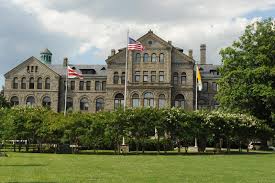
Your academic record is the most important factor in admission to colleges, but non-academic factors such as extracurricular activities also play a significant role. We advise that you use your opportunities to participate in extracurricular activities in ways that increase your likelihood of admission.
The Value of Summer Activities
Among your activities, those you engage in during the summer have the greatest potential to favorably impact admissions. Activities during the academic year are limited by your high school’s offerings and your time availability. Summers allow you to pursue a wider range of interests more freely. Using your summers wisely will enable you to demonstrate attributes that colleges seek such as leadership, a strong work ethic, dedication, a desire to learn, and civic-mindedness.
High GPA’s and SAT/ACT scores are the norm for applicants to top colleges, so they need to differentiate among many students with exceptional academic records. Colleges filter applications to find academically qualified students who:
- Possess a hook such as a talent or skill sought by the school,
- Possess characteristics that will increase the school’s diversity,
- Possess legacy status, or,
- Closely fit the school’s profile of an ideal student.
Choosing Activities
Not all students know their educational goals as underclassman, but to the extent that you do know them you stand to benefit. It will help if you select activities that show your commitment to your goals. Freshman and sophomore summers can be used to set the stage for junior summer activities that truly impress admissions committees such as a prestigious research position, internship, or an academic program in your planned major.
What if you’re a junior who has just determined your educational goals? Is it too late for you to use your last summer to advantage? Not at all — colleges understand that interests change during high school. Let’s say that you now recognize your affinity and aptitude for civil engineering. You can act on this by taking a summer college course that teaches the basics of civil engineering. Admissions officers are likely to note your success in the course and conclude that you are cut out for a career in civil engineering and have already taken a step in that direction. They’ll be impressed by your purposeful pursuit of your goals.
If you’re a student who works to earn money for college or to contribute to your household, you can still optimize your summers. A job indicates that you’re practical, responsible, and mature. Unlike volunteering, you must always show up for a job, work hard, and perform well. Try to find a job that challenges your capabilities and leads to a leadership role.
The summer activities that we consider to be the most beneficial are the following:
- Internships: Internships can be for a business, law firm, hospital, public agency, medical practice, or nonprofit organization. In any of these scenarios, they provide valuable exposure to your future field of study and they enable you to make the case that you’ve already started on your planned career path. Real-world experience as an intern, especially in a mentored program, elevates you above peers who have not had similar experience.
- Research: If you plan to pursue a career in science, participation in a summer research program displays a high level of commitment. There are many such programs, including highly selective ones that invite students who have demonstrated academic excellence and have had lab experience. College admissions officers recognize and value the rigor of these programs.
- Academics: Taking college courses reflects your passion for a particular discipline and demonstrates your ability to do college work, both of which make you a more desirable applicant. Taking a pre-college summer program conducted by an institution also makes your application more impressive, but be aware that successfully participating in such a program doesn’t assure your admission to the institution that hosted it.
- Volunteering: Colleges value applicants with a record of service at nonprofit organizations that are dedicated to helping others. It shows the kind of enthusiasm, selflessness, and commitment that promises to benefit both the college and its community. Volunteering also presents opportunities to show your initiative and creativity. Beginning as an underclassman, you should seek positions of increasing responsibility so that you can attain a leadership position that will add value when cited on your application. If you go on a packaged trip as a service volunteer to a third-world country in order to enhance your application, the nature of the service needs to flow from activities that you’ve already engaged in so that it’s clearly genuine. Under these circumstances, this kind of trip can broaden your experience in an enjoyable way and improve your chances of admission to colleges.
At Louis Educational Consulting, we conduct an assessment of your interests and aptitudes at the beginning of our engagement with you. With this information, we guide your selection of activities that will earn the notice of colleges. We’re mindful that they’re more than just a way to impress college officials. They’re meaningful experiences on your life-long path to self-discovery.
